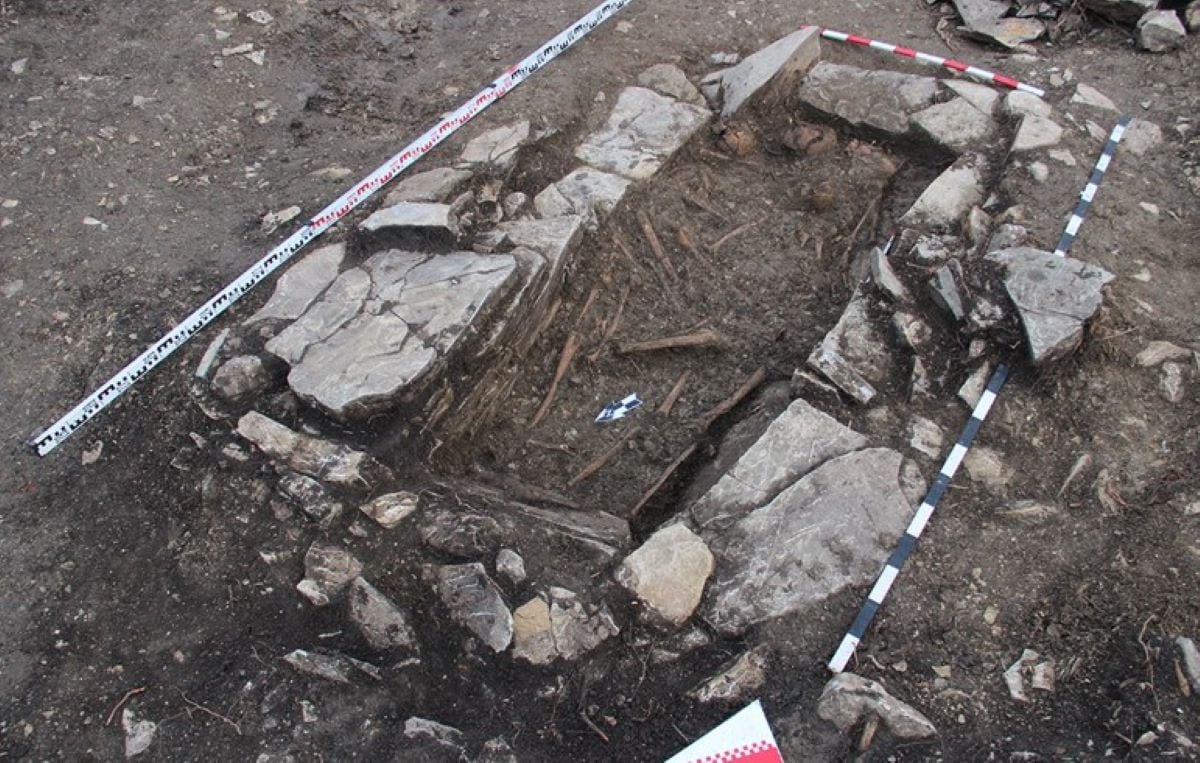

One of the tombs in the ancient Kuban cemetery. Source: Russian Academy of Sciences
Archaeologists from the Institute of Archeology of the Russian Academy of Sciences discovered a cemetery dating from the 4th to 3rd centuries BC.
This discovery was made during construction work on a new highway in the Kuban, which is located in the North Caucasus region of southern Russia.
Excavations revealed a cemetery on an ancient plain containing rectangular burial pits. These pits were lined with flat slabs, marl or sandstone. A total of 22 graves were identified. However, many tombs were captured or destroyed during antiquity.
One of the 19 graves identified by archaeologists contained the skeletons of a man and a woman. Condolences were found from relatives in the same place, including Bronze rings, spear and iron tip.
While working, archaeologists found a grave with the remains of five people buried. Buried with them were offerings of multiple spears, silver ornaments, iron knives and bronze rings, one of which was decorated with an image of a temple.
Only one of the graves had any signs of having been seized or destroyed. Archaeologists have identified an amphora in it, a Polished black mug, copper and iron rings, and a copper bracelet.
In the wider area of the tomb, numerous amphorae and tableware were recorded, among jugs and cups. According to researchers, the majority of these objects arrived at the cemetery from the ancient Greek city of Paphlagonia, Heraclea Pontica. It is possible that these objects were used in funerary ceremonies to honor the dead.

“Hipster-friendly coffee fanatic. Subtly charming bacon advocate. Friend of animals everywhere.”





More Stories
F-16 crashes in Ukraine – pilot dies due to his own error
Namibia plans to kill more than 700 wild animals to feed starving population
Endurance test for EU-Turkey relations and Ankara with Greece and Cyprus